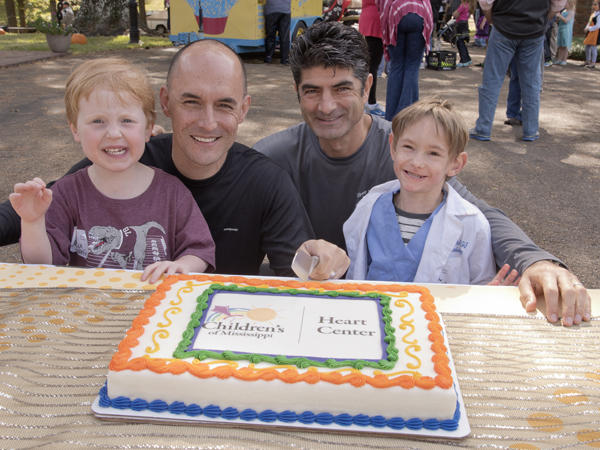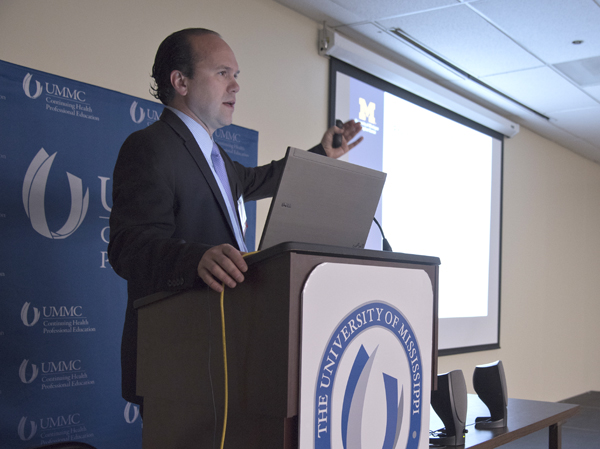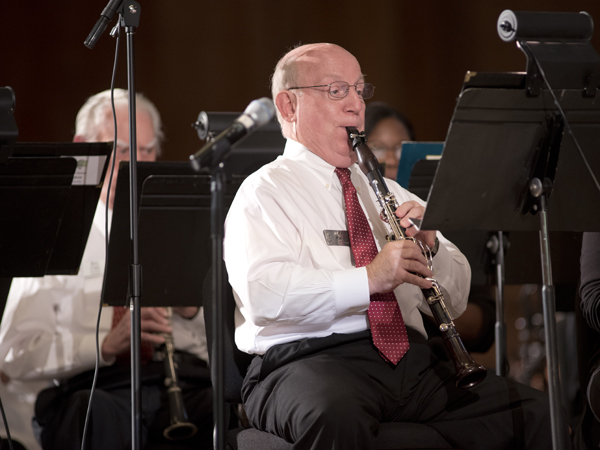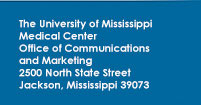|
Dr. Fred Rushton, a UMMC surgeon, is known for his ability to work as part of a team, facility for memorization and recall, professionalism and dexterity - all of which contribute to his flair for handling a precise and specialized instrument: the clarinet. He's also pretty good with a scalpel - as might be expected of the division chief and program director for the Division of Vascular and Endovascular Surgery. But surgery, as much as he enjoys it, is his job. Music - listening to it and performing it - is his therapy and his thrill. “When I come home from a bad day,” he said, “I go in my man cave and put on the Mahler symphonies or Beethoven's 7th. It's how I relax.” “Relax,” he says. Rushton is so attuned to music, he plays clarinet for three different ensembles: the Mississippi Community Symphony Band; the Mississippi Baptist Symphony Orchestra, which is part of the Mississippi Baptist Convention; and the Worship Orchestra of the First Baptist Church of Jackson, where he's a member “He's an incredible musician,” said Dr. Lavon Gray, the church's minister of music. “I don't know how he has time to stay up with everything musically, but he obviously does. “He's also been on medical missions, including to Haiti, where he ran clinics for a team from the church this past July. He's a jovial Christian gentleman who brings joy to anything he touches.”
|
























